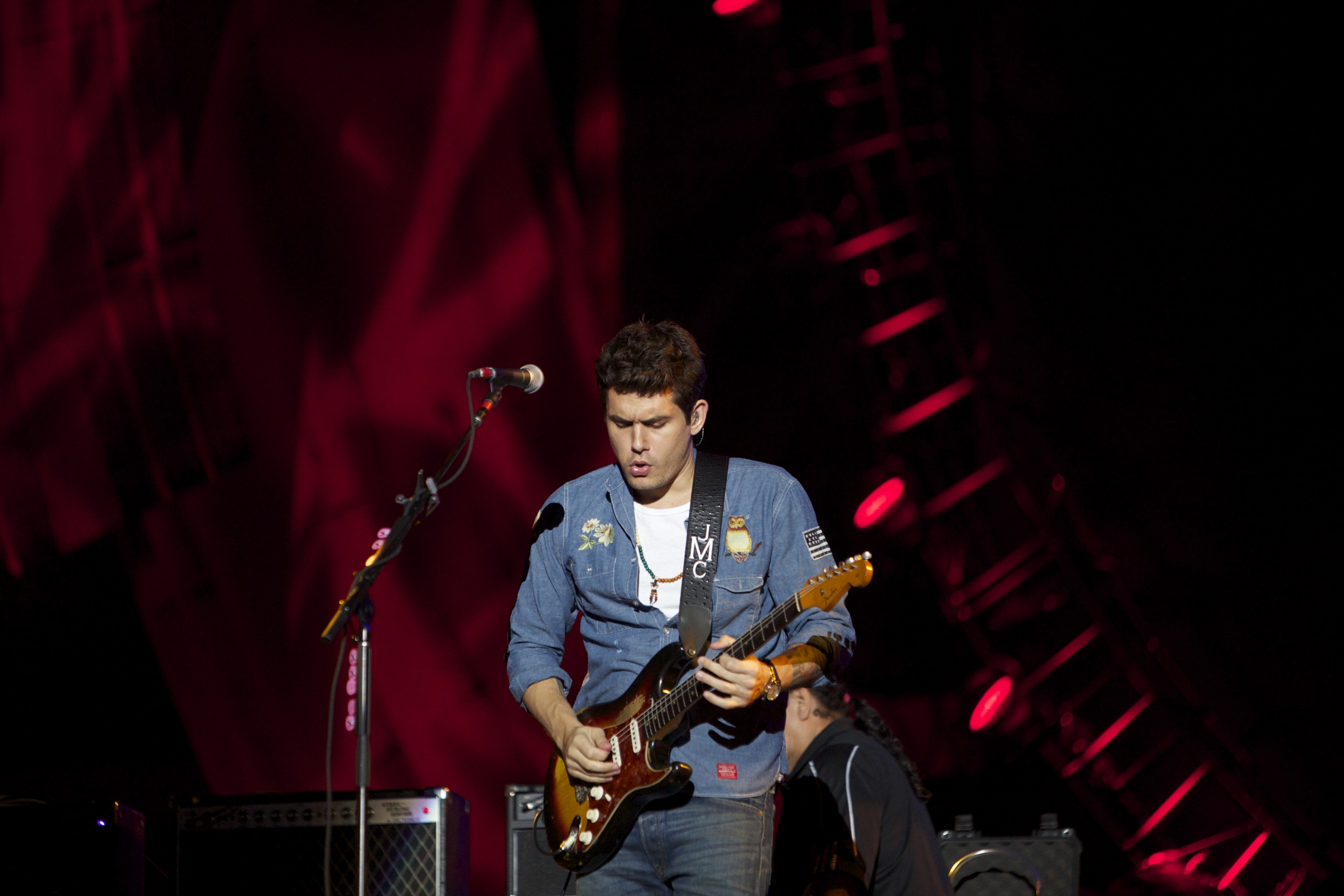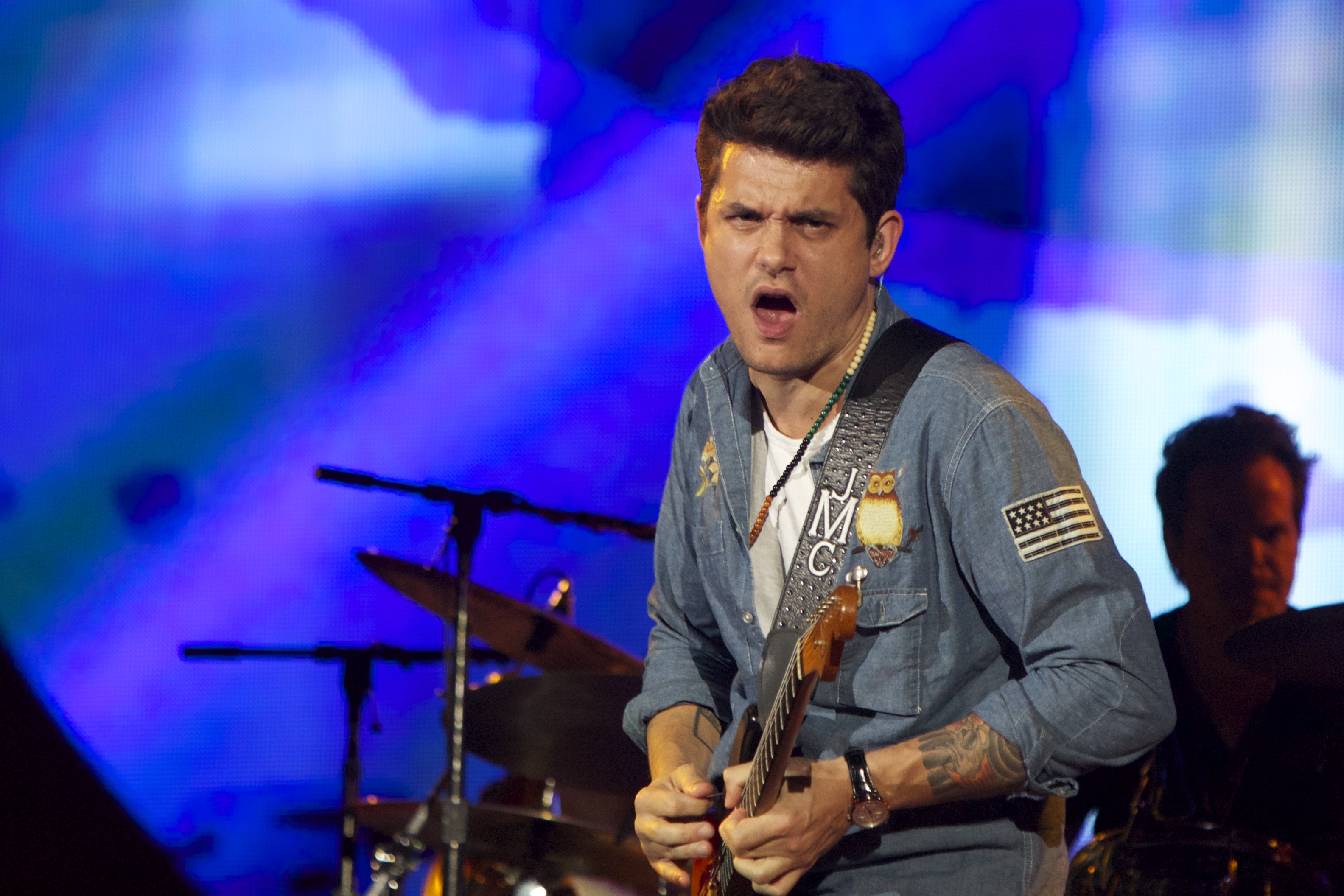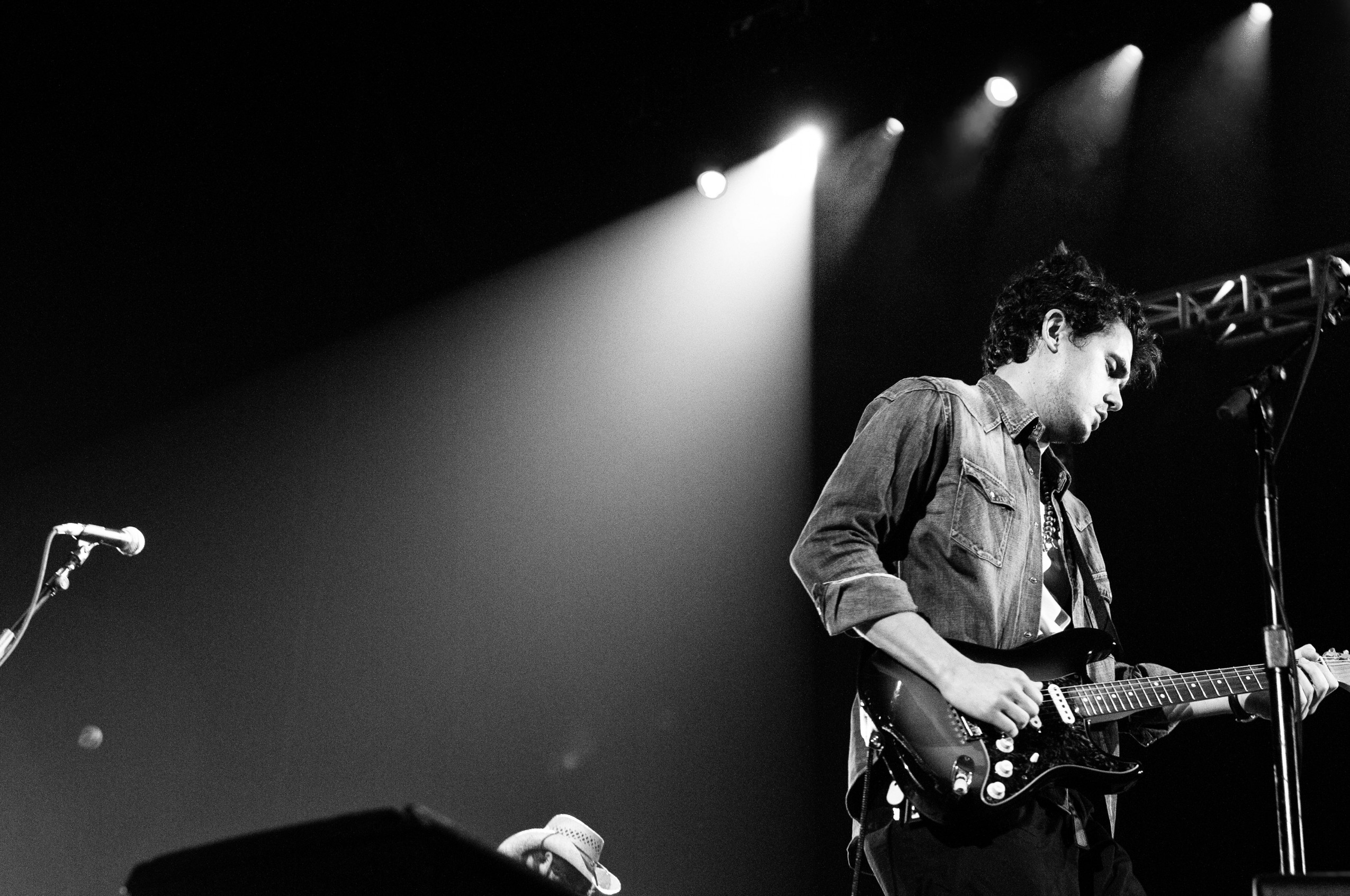How to write a killer blues record with John Mayer
Top tips from the modern blues master

How to write a killer blues record with John Mayer
GUITARS AND AMPS EXPO: The blues has enjoyed a rich revival in the last decade, once again becoming insanely cool and full to brimming with talented guitarists and songwriters. John Mayer has led that resurgence right from the off, releasing chart topping albums that pack the grit of blues with a healthy pop sheen.
It's a mix that has found a gigantic audience and has seen Mayer showered with critical acclaim - just check his mantelpiece filled with Grammy awards for proof. So, with that in mind, who better to share a few tips on how to write a killer blues record?

A blues record doesn't have to be miserable
“I never thought of blues as being miserable. In a way, my ‘pop’ music is really getting out the anguish, and my blues music is the fun. I’ve sorta got it in reverse. Like, my balls are where my dick is. That’s a weird analogy...
"The thing that struck me as a guitar player when I was a kid was something in the air around somebody who was soloing and playing the blues. If I’ve made anyone else get into that - someone who’s 17 and doesn’t play the guitar or know who Freddie King is - then that’s great.”

Take inspiration from the legends
“I picked up on Hendrix after I heard Stevie Ray [Vaughan] play Little Wing and Voodoo Chile. The first of [Hendrix's] records that I had was Axis Bold As Love because it had Little Wing on it - that song is so beautiful. That album to me is still the best Hendrix record. It’s that moment where he was just discovering his power, before he discovered people trying to rob him blind of just about every commodity you could imagine.
"It just has this beautiful spirit to it and it’s still my favourite - it’s the artist beginning to realise the musical scope that he could create.
"But I think that whatever it is that makes someone an interesting guitar player starts before you even pick up a guitar. It’s a mindset, you know? I think that people play like their personality. Have you ever known a creative musician who’s really boring?”

Stay true to yourself
“I think I’ve stayed true to what my sound should be. I still aggravate the hell out of people by not committing to being a blues guitar player or a pop musician, but I like ’em both.
"I think I’ve proven with Continuum [Mayer's acclaimed 2006 studio album] that it’s at least possible to get people to bop their heads along to something that contains guitar playing and pop melodies.”

Get the right gear for the job
“I have the painted Hendrix Strat - the Monterey Strat. I have my signature model, the green one, the cypress mica one. I have the signature model with the stripe on it - any one of those guitars could last the whole show. But I’ve just got very specific for one reason or another about playing certain guitars for certain songs.
"For Vultures [Continuum, 2006], I have to play the gold-leaf Strat. That’s what I wrote the song on and it’s got that incredible second position - what do they call it, the quack? That’s the quackiest Strat of all time! Vultures does not work on another guitar. That weird, hollowed-out, out-of-phasey type sound.
“I’ve always liked that sound, especially the fourth. When I was a kid that was my favourite sound on the guitar; it’s even, it’s smooth, it has 'chimeyness', but it still has bass. It’s the most colourful selection on the Strat.”

Think composition
“Everything I do is compositionally led. When I first started playing music I didn’t have a band, so what am I going to do? I get an acoustic guitar and play that - my compositions fit an acoustic guitar.
"Then my second record comes along and I have a little money so I buy myself a Korg and start sequencing stuff. I write stuff that I can sequence, and that’s not a great idea because it’s then very hard to play live. Then the Trio comes in and now I want to make music that fits the Trio! After that, I felt like I wanted to make music to incorporate all of that stuff, and that’s what my album Continuum was.”

Don't be restricted when writing solos
"I would say that [when writing solos] you shouldn’t be restricted by shapes. A lot of the time, guitarists are just moving shapes around, but the best solos I’ve ever done were when I put the shapes aside and said, ‘What notes do I want to play here?’ It gets a lot more interesting.
"You’d be surprised how lyrical the solos then become, and how people really clock what you’re doing. Listeners have more attraction to guitar solos that have sing-ability. I’m very proud of the Gravity solo."
And you can check out John's Gravity solo right here:

The magic of note placement
“It’s all about where you place those notes. I mean, [Eric Clapton’s] Wonderful Tonight is a G major pentatonic. Plenty of people have played a G major pentatonic [scale] but they didn’t write Wonderful Tonight.
"As guitarists, we also need to be songwriters in order to understand the theory behind songwriting and lyricism. Then you’ll find that you get hotter girls coming to your shows.”

Getting the SRV tone
"...The SRV tone - it’s not distorted, it’s just loud. There’s a difference in something loud hitting a microphone and something distorted hitting an amplifier. They are two completely different things.
"People would be really surprised, if you are going for that Tube Screamer thing, of just how much it was a volume thing and not a distortion thing with Stevie. I don’t like things that are quiet and distorted. If it distorts because it’s loud, then you’re happening!”

Don't be scared of clichés
“I sometimes play the clichés. I think if you’re writing your own music, then even playing a pentatonic scale isn’t clichéd because you have different melodic interplay.
"I’m not a hater. I’m not a snob about music. I can go out to a bar for a couple of drinks and I won’t think to myself, ‘You gotta let me up there because this guitar player ain’t got it going on’. I have a very good ability to allow room for everything. Especially because if you don’t think that guy is very good, he’s not gonna pose a threat to you so God bless him.”